
FTZ’ine July 2021
July 1, 2021FTZ’ine September 2021
September 1, 2021Things Could Get Bumpy Again. . . .
The August peak for trans-Pacific Ocean freight is now upon us, but transportation lanes never fully recovered from their pandemic-induced woes. That means longer wait times and higher prices may be in the future and spot rates are already at multiples of pandemic and pre-pandemic pricing.
Floods in Germany and China exacerbated the difficulties in eliminating persistent supply chain bottlenecks for many importers. Goods trying to move to, from, and through affected regions were delayed and a complete restoration of inland transportation routes may be months away.
The Delta variant is causing a surge in COVID-19 cases around the world. While here in the United States 90% of new cases are linked to unvaccinated persons, the CDC has warned new evidence shows even vaccinated folks can transmit the variant. This may cause a reintroduction of mask mandates and interfere with the planned reopening of schools and offices around the country.
The US and China traded a new round of jabs, with the areas of disagreement continuing to expand. Its not just the global climate that seems to be getting hotter.

Top Story: Forbes Magazine Spotlights de minimus Quandary
Tech Tip
With the recently implemented aluminum licensing requirements, questions are arising about how to report the required license information for merchandise going into an FTZ.
For all steel, and now all aluminum imports, a license must be obtained prior to bringing the goods to the United States. In a non-FTZ scenario, this would mean reporting the license number on the 7501 used to import the goods. But, in the case of an FTZ, the licenses must be obtained prior to the goods being admitted to the zone and license information is reported on the 214.
In a recent CSMS message (CSMS #48923327 - Steel/Aluminum license validation causing Type 06 entries to reject), CBP confirmed that this also means that licenses do NOT have to be reported on the 7501 upon the goods leaving the zone. Some zones were including the licenses on the 06 entry, and the entries were being rejected because the license had already been used on the 214 at the time of admission. FTZ’s must only report the license when admitting the goods on a BOL that contains steel or aluminum.
This also highlights the fact that the steel and aluminum 232 tariffs are still with us. There have been rumblings in D.C. about them being lifted, especially for European imports. That prospect raises the question of what happens to PF status goods after the tariffs are lifted. This is still an unanswered question, and one that the FTZine staff is watching closely. When we know more, we’ll be sure to let you know!
If you have questions about materials subject to steel or aluminum licensing, send them to us at Info@iscm.co .


China Issues Grow More, Not less, Complex
Docking This Ship Took For Ever
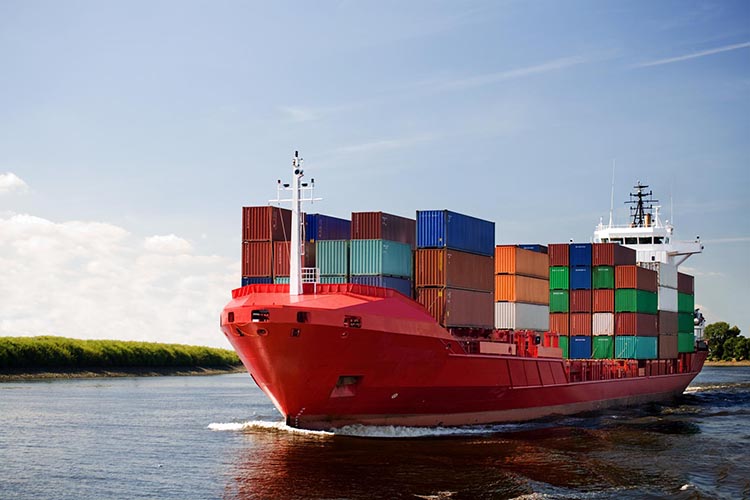
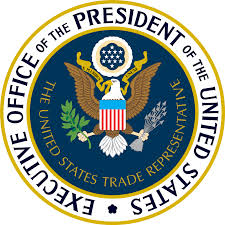
Top Story: USTR Adds Media Staff
Computer Troubles Disrupt Port of Houston Operations
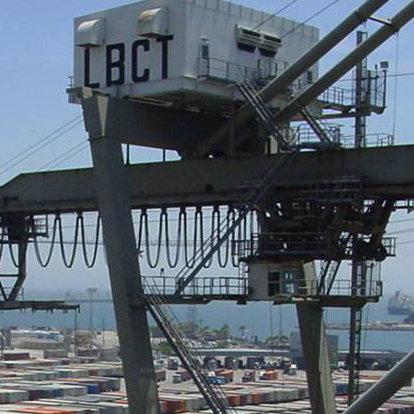
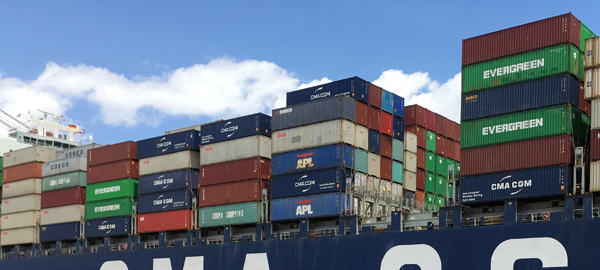
FTZ Staff Activity
FTZ Board Activity
- Lockheed Martin Corporation received authorization of production activity for additional components of satellites and other spacecraft within FTZ 123 in Littleton, Colorado. MORE
- Miraclon Corporation received authorization of production activity for flexographic/aluminum printing plates and direct imaging/thermo imaging layer film within FTZ 106 in Weatherford, Oklahoma. MORE
- Bridgeport Port Authority received authorization for the reorganization of Foreign-Trade Zone 76 under the Alternative Site Framework in Bridgeport, Connecticut. MORE
- The FTZ Board is inviting public comment on the rebuttal submission of Teijin Carbon Fibers, Inc. within FTZ 38 in Spartanburg, South Carolina. MORE
- Nikola Corporation submitted a notification of proposed production activity for electric road tractors and motor vehicles within FTZ 75 in Coolidge, Arizona. MORE
- VF Outdoor, LLC submitted an application for the expansion of subzone 50R in Corona, Ontario, and Santa Fe Springs, California. MORE
- IPR Pharmaceuticals, Inc. received authorization of production activity for additional components of pharmaceutical products within FTZ 7 in Canovanas, Puerto Rico. MORE
- AstraZeneca Pharmaceuticals LP received authorization of production activity for additional components and finished pharmaceutical products within FTZ 99 in Newark, Delaware. MORE
- Galdisa USA submitted a notification of proposed production activity for peanut products within FTZ 265 in Conroe, Texas. MORE
- Liebel-Flarsheim Company, LLC submitted a notification of proposed production activity for diagnostic imaging contrast media within FTZ 93 in Raleigh, North Carolina. MORE
- Watco Transloading, LLC received approval to operate its facility in Parsons, Kansas as Subzone 161D. MORE
- AstraZeneca Pharmaceuticals LP received authorization of production activity for additional components and finished pharmaceutical products within FTZ 177 in Mount Vernon, Indiana. MORE
- Schlumberger Technology Corporation submitted a notification of proposed production activity for sand screens and related accessories within FTZ 84 in Baytown and Houston, Texas. MORE
- The Huntsville-Madison County Airport Authority submitted an application to reorganize FTZ 83 under the Alternative Site Framework in Huntsville, Alabama. MORE
- Liebel-Flarsheim Company, LLC received authorization of production activity for diagnostic imaging contrast media within FTZ 93 in Raleigh, North Carolina. MORE
- Merck & Co., Inc. received authorization of production activity for additional components and finished pharmaceutical products within FTZ 185 in Elkton, Virginia. MORE
- Zoetis Services, LLC received authorization of production activity for additional components and finished pharmaceutical products within FTZ 59 in Lincoln, Nebraska. MORE
- LUC Urethanes, Inc. submitted a notification of proposed production activity for wheels, rollers and friction pads for industrial machinery and material conveyance within FTZ 265 in Conroe, Texas. MORE
- Phillips 66 Company received approval for the expansion and modification of Subzone 149C in Brazoria County, Texas. MORE
- M.M.O. Companies, Inc. submitted a notification of proposed production activity for disassembly of firearms and ammunition within FTZ 31 in Mascoutah and Edwardsville, Illinois. The notification review has been terminated. MORE
- AbbVie, Inc. submitted a notification of proposed production activity for additional components and finished pharmaceutical products within FTZ 22 in North Chicago and Lake County, Illinois. MORE
- The Economic Development Council, Inc. submitted an application to reorganize FTZ 114 under the Alternative Site Framework in Peoria, Illinois. MORE
- Black & Decker (U.S.), Inc. received authorization of production activity for production and kitting of power tools and injection molded parts within FTZ 38 in Fort Mill, South Carolina. MORE
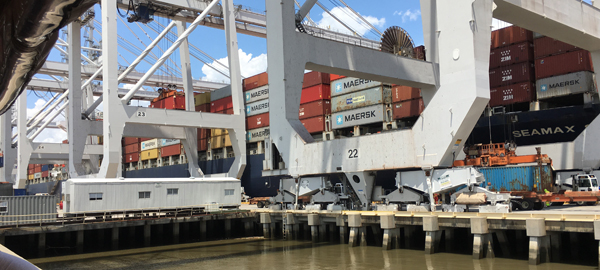
Things Could Get Bumpy Again. . . .
The August peak for trans-Pacific Ocean freight is now upon us, but transportation lanes never fully recovered from their pandemic-induced woes. That means longer wait times and higher prices may be in the future and spot rates are already at multiples of pandemic and pre-pandemic pricing.
Floods in Germany and China exacerbated the difficulties in eliminating persistent supply chain bottlenecks for many importers. Goods trying to move to, from, and through affected regions were delayed and a complete restoration of inland transportation routes may be months away.
The Delta variant is causing a surge in COVID-19 cases around the world. While here in the United States 90% of new cases are linked to unvaccinated persons, the CDC has warned new evidence shows even vaccinated folks can transmit the variant. This may cause a reintroduction of mask mandates and interfere with the planned reopening of schools and offices around the country.
The US and China traded a new round of jabs, with the areas of disagreement continuing to expand. Its not just the global climate that seems to be getting hotter.
